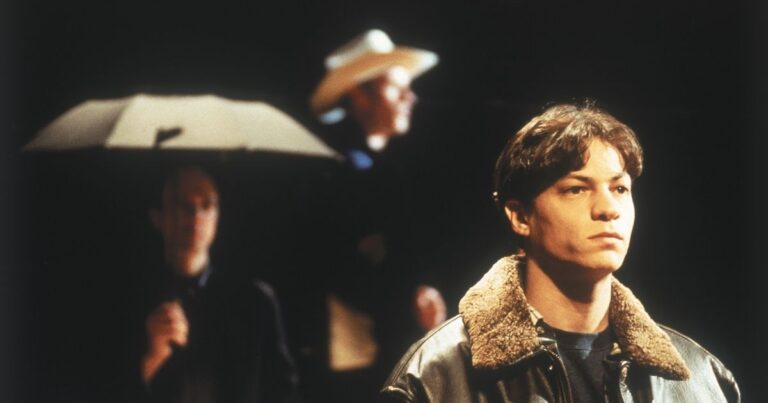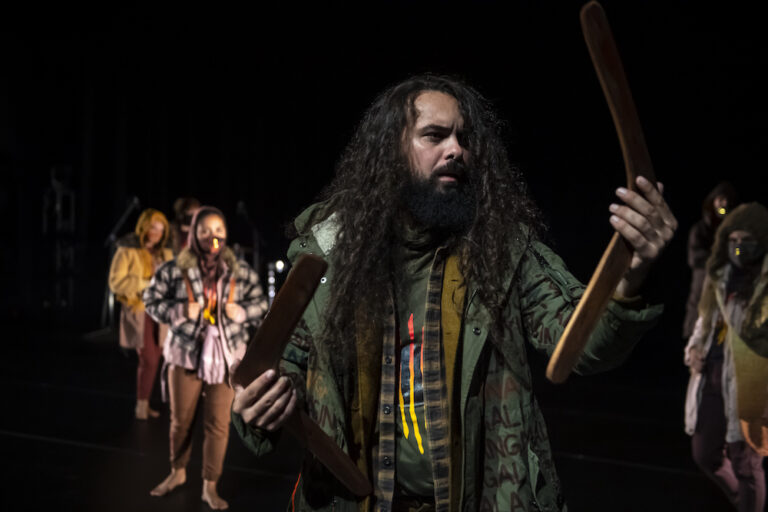
SPEAKING UP FOR PEACE
by Larry Buttrose
Although John Pilger’s Sydney Peace Prize might be considered controversial in some quarters, it really should not come as a surprise. Pilger is after all one of the best known and most read left-wing progressive journalists in the world, as such following in the footsteps of another famous – and also much denigrated – Australian, Wildfred Burchett. And no matter what Pilger’s critics might say, few could deny that he has devoted his life to uncovering injustice, cruelty and atrocity, most famously Pol Pot’s genocidal regime in Cambodia.
At the same time, another peace prize, Barack Obama’s Nobel, has also raised eyebrows. In this case, however, it is hardly surprising, as Obama is still presiding over two wars. If net yield of peace were the criterion, Obama has so far yielded zero.
But he is something else too: the foremost orator of our times. The power of oratory propelled this black man of mixed race from relative obscurity to the White House in the space of two short years.
Human beings have pleaded the case for millennia for a new way to resolve disputes beyond the all too familiar club and sword, bomb and gun. All the time though, others have been urging men to go and fight, for this god, that territory, this principle, that race. The argument between the prophets of peace and the masters of war is as old as oratory itself.
In the year 399 BCE, Socrates was sentenced to death on charges of refusing to recognise the gods of the state, and corrupting the young people of Athens. A philosopher of the streets, he was much loved by fellow Athenians, and they cried out as the sentence was passed. But according to Plato’s Apology, Socrates responded by saying: “You can assure yourselves of this… if you put me to death, you will not be doing greater injury to me than yourselves.” Socrates was pointing to the futility of violence as a means of resolving disputes. At around the same time, in India another philosopher was articulating a view of the world that also opposed violence. The Buddha Siddharta Gautama’s view was that the world and all its enticements were the source of human woe, and that people would not find fulfilment through desiring worldly things. Rather, they would be rendered unhappy, through disappointment and conflict. Greed was not good.
Several centuries later in Roman-occupied Palestine, a young man called Jeshua ben Joseph, or Jesus Christ as he is known today, preached the virtues of non-violence to his followers, urging them to turn the other cheek, and even show compassion for their foes, to “love thine enemy”.
But such voices were few and far between. Much of history is written in blood, in accounts of battles and sieges, military victories and defeats. Some readers complain that indeed all conventional history is little more than a record of wars and battles, and the dates upon which they were fought. Accounts of ancient conflicts, real and legendary, have come down to us in the pages of literature, from the Bible to the Bhagavad Gita, from the hieroglyphs of the Egyptians to the Iliad of Homer.
In the Iliad we read that the love of a woman launched a fleet against Troy, sealing its fate. But the men of legend who raised their swords against Troy had never beheld Helen’s face. They had only heard about Troy – and more tellingly, its riches – through oratory. It was not a face that launched those thousand ships, but the word.
At the Council of Clermont in France in the year 1095, Pope Urban II made a rallying cry that rang to the ends of Christendom. It was a call to arms, to war. The centuries of crusades against Muslims had begun.
“You must hasten to carry aid to your brethren dwelling in the East, who need your help for which they have often entreated. For the Turks, a Persian people, have attacked them… Let those who have long been robbers now be soldiers of Christ. Let those who once fought against brothers and relatives now rightfully fight against the barbarians.”
It is not only Muslims then who have called for “holy war”, and not only American presidents who have sent men to die in the distant battlefields of the East. Through the annals of history, down to the present, the oratorical power of leaders has rallied men to fight other men, and that power abides today, undimmed by time, technology and change.
Early in his presidency, John F. Kennedy linked war to poverty, saying that global security depended to a great extent on the developing independent nations “where men can live in dignity, liberated from the bonds of hunger, ignorance and poverty”.
In other words, give people everywhere a decent standard of living, share the earth’s wealth more commonly, and the dangers of war, insurgencies and terror will be diminished.
Former South African president and global elder statesman Nelson Mandela reinforced the point in a speech in 2005 to a mass rally in London’s Trafalgar Square ahead of a G7 meeting, in which he urged the G7 leaders to “make poverty history”.
“…in this new century, millions of people in the world’s poorest countries remain imprisoned, enslaved, and in chains.
They are trapped in the prison of poverty. It is time to set them free. Like slavery and apartheid, poverty is not natural. It is man-made and it can be overcome and eradicated by the actions of human beings.”
And while, as Kofi Annan remarked, one of the problems for the peace movement is that unlike war, peace has no parades or pantheons of heroes, the late Benazir Bhutto pointed to a true “peace dividend” when she risked all to speak at a peace seminar in New Delhi in 2003.
“We can think of the peace dividend as the sum of resources no longer devoted to the military and available for the social sector. The peace dividend can be the traditional guns for butter trade-off. In the longer term, a peace dividend is defined by investment. We must invest in technology. We must invest in infrastructure. Above all we must invest in human capital – specifically on education and health.”
The Age of Terror has created new demands upon both the resources of nations to fight and the lexicon of those who oppose violence and seek to end it. The greatest orator of the last century, Martin Luther King, advocated struggle for rights and human betterment, but never through violence, which he saw as ultimately futile.
“The aftermath of nonviolence is the creation of the beloved community. The aftermath of nonviolence is redemption. The aftermath of nonviolence is reconciliation. The aftermaths of violence are emptiness and bitterness.”
These are sentiments I believe John Pilger would endorse entirely. I interviewed him once, in 1980, above his mother’s hairdressing salon on Spit Road. I was doing it for a newly established public radio station in Adelaide which I’m sure he, like almost everyone else in the country, would not have heard of, but he gave it as much time and thought as an interview with a major newspaper. He was pleasant, to the point, humble, candid, and committed. There was no hint of the overweening, ego-driven ideologue even back then he was being painted as by the overweening, ego-driven, right wing ideologues of the press. He was committed to nothing more or less than equity between the peoples of the earth, which he knew was the precondition for peace, just as its opposite, greed, is for war. For decades, his pen has given eloquent expression to his power of passionate speech. It is time we put aside whatever differences as might exist, and acknowledge him as a great Australian, fully deserving of this award.
Larry Buttrose’s new book “Speeches of War and Peace” will be launched by Dr Helen Caldicott on Monday night at 6pm at Gleebooks, 49 Glebe Point Rd, Glebe. All are welcome to attend.









